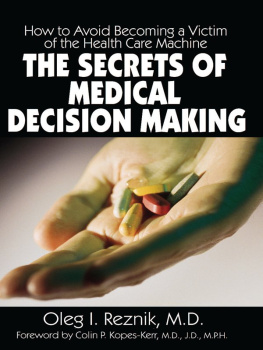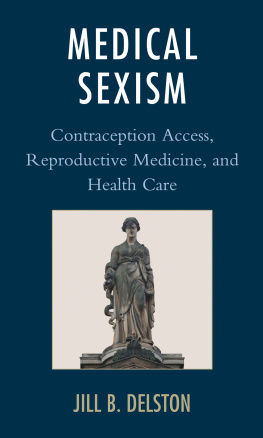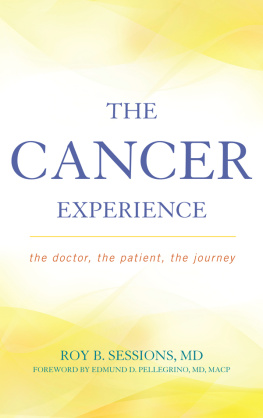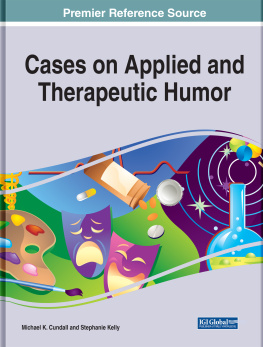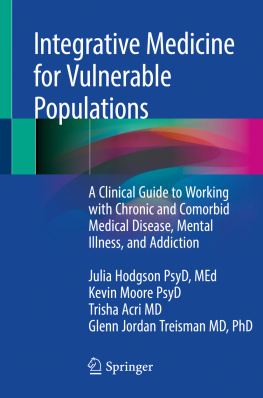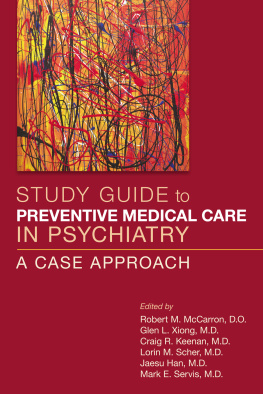The Secrets of Medical Decision Making:
How to Avoid Becoming a
Victim of the Health Care Machine
By
Oleg I. Reznik, M.D.
Foreword by
Colin P. Kopes-Kerr, MD, JD, MPH
The Secrets of Medical Decision Making: How to Avoid Becoming a Victim of the Health Care Machine.
Copyright 2006 Oleg I. Reznik. All Rights Reserved. No part of this publication may be reproduced or distributed in any form or by any means, or stored in a database or retrieval system, without the prior written permission of the publisher.
First Edition: January 2006
Library of Congress Cataloging-in-Publication Data
Reznik, Oleg I.
The secrets of medical decision making : how to avoid becoming a victim of the health care machine / by Oleg I. Reznik; foreword by Colin P. Kopes-Kerr.-- 1st ed.
p. cm.
Includes bibliographical references and index.
ISBN-13: 978-1-932690-16-3 (case laminate : alk. paper)
ISBN-10: 1-932690-16-6 (case laminate : alk. paper)
ISBN-13: 978-1-932690-17-0 (trade paper : alk. paper)
ISBN-10: 1-932690-17-4 (trade paper : alk. paper)
1. Patient participation. 2. Medical care--Decision making. 3. Physician and patient. I. Title.
R727.42.R49 2006
610.69'6--dc22
2005019931
Distributed by:
Baker & Taylor, Ingram Book Group

Published by:
Loving Healing Press
5145 Pontiac Trail
Ann Arbor, MI 48105
USA
http://www.LovingHealing.com or
Fax +1 734 663 6861
Loving Healing Press
To Mathilde.
Pre-publication Praise for Secrets
The Secrets of Medical Decision Making is an important book. It should be read by everyone, because all of us are sometimes in need of medical care. It is an eye-opener, a call to arms and a guide.
Robert Rich, Ph.D., MAPS, AASH, author of Cancer: A Personal Challenge
Dr. Reznik candidly exposes the conflicting interests inherent in contemporary medical practice. He encourages patients and their family members to be knowledgeable and pro-active healthcare consumers by asking questions, evaluating research, trusting personal preferences, and understanding the limitations of modern medicine. This empowering and insightful book is a must read for healthcare professionals and the patients they treat.
Beth Maureen Gray, R.N., B.S.
The Secrets of Medical Decision Making awakens the reader rather quickly with startling revelations about the lack of seriousness the health care industry has towards a society of wellness. Patients in today's society resemble an assembly line as they are pushed through a healthcare system that seeks to serve and protect the medical industry at the expense of the patient's health, safety, and welfare. If this book at least motivates its readers to become more involved in medical decision making when seeking treatment, it will have succeeded as a critically needed public service.
Rev. James W. Clifton, Ph.D., LCSW
This is a profound book for the layman. Many times a doctor never levels with their patients because the doctor wants to spare us the pain of dealing with the illness or disease. I know, from personal experience, I'm more hurt and suspicious of my doctor when they behave this way rather than telling me plainly. I recommend The Secrets of Medical Decision Making to all patients interested in their health and keeping healthy.
Lillian Cauldwell
About the Author
Oleg I. Reznik, M.D is a Board Certified Family Physician working at the Willamette Family Medical Center and in private practice, on staff at Salem Memorial Hospital, Salem, OR.
Family Medicine Residency Program at State University of New York (SUNY) Stony Brook, Stony Brook, NY 2000-2003;
MD degree cum laude at SUNY Downstate, Brooklyn, NY 1996-2000;
Bachelors degree in Neuroscience cum laude at New York University, New York, NY 1991-1995;
Table of Figures
Acknowledgments
I would like to express my appreciation to Dr. Kopes-Kerr for his brilliant professional newsletters, which were the source of a great deal of the supporting material used in this book; for his inspiring character, and for writing a foreword to this book.
I would like to thank Dr. Bob Rich for his invaluable help in editing this book. During this journey together I had the privilege of contributing to his book CANCER: A Personal Challenge, which is an invaluable resource for cancer sufferers and their families.
I would like to thank the Trustees of Dartmouth College, who have given their permission to use the wealth of information concentrated in The Dartmouth Atlas of Health Care, with excerpts and diagrams, free of charge.
Foreword
by Colin P Kopes-Kerr, MD, JD, MPH
Where has Marcus Welby, MD, gonethat prime-time hero of the 1969 TV medical drama starring actor Robert Young? We really need him now. Sadly, this image of a gentle friend and neighbor to his patients, who relied more on his caring and belonging to his community than upon bioengineered pharmaceuticals and high-resolution computerized imaging techniques, is nowhere to be found in the early 21st century. This is disappointing, even to physicians, many of whom entered the non-specialized area of primary care with this gratifying model very fresh in their minds. What happened to the home town physicians who based their diagnoses and treatments on personal knowledge of patients and their context? They have quietly disappeared through retirement or disillusion with the social changes (of which there are manymanaged care, malpractice crises, federal regulation, etc.) that have transformed medicine. They have not been replaced.
Everything in medicine has changed. The social and cultural context in which patients live has changed dramaticallywith less job security, higher unemployment, less insurance coverage, higher deductibles, and a pervasive mistrust of civic leaders. US society now tolerates a clear and widespread social division between the medical haves (those with good health insurance) and the have nots (those without medical insurance). Both groups have profound medical problems, but they are very different. Medical education now limits the vision of family doctors by recruiting mostly those who are destined to be specialists wielding high-technology diagnostic devices or state-of-the-art intrusions into the body for various repairs. The content of medical education has become highly research-based, specialist-oriented, and focuses almost exclusively on secondary prevention (what to do after a disease has already become manifest, and directed only towards those with good health insurance), rather than on the truly life-saving, life-prolonging strategies that comprise primary prevention (steps to avoid the disease in the first place). Conveniently forgotten is the fact that improvements in sanitary conditions are responsible for most of the longevity we have achieved, and that the most impressive, cost-effective, and high-yield medical interventions are still simple things like diet, exercise, vitamins, and aspirin.
The landscape for physicians to find opportunities to practice has been radically altered by governmental and legal constraints. The only physicians who will be financially rewarded are those who seek to deliver high-margin services to the well-to-do (meaning at a minimum those with good health insurance), in popular living centers where new physicians are least needed. They will generally work for large, impersonal organizations that are rich enough to manage legal risk, monitor compliance with all applicable local, state, and federal regulatory constraints, insure aggressive risk management practices and maintain adequate malpractice coverage in order to insure the ability of the enterprise to continue participating in the potential profits of medical practice. Patients have to turn to relatively soulless, mega-corporate enterprises, being conducted by warring behemothslarge insurance companies (Aetna, US Health, United, etc.), pharmaceutical drug companies (Pfizer, Merck, Lilly, etc.), medical and biotechnology engineering companies (GE, Johnson & Johnson, Hewlet Packard, Genentech, Medtronic, Guidant, etc.), and very successful political lobbies for all these groups plus additional special interest groups like AARP and the Trial Lawyers Association. This landscape should be readily recognizable to all of us; some part of it gets a new headline everyday. Conspicuously absent from the widespread media coverage of the modern American health miracle is a concern for the average citizen's healthcare experience or the patient outcome that really mattersthe number of preventable years-of-life-lost. We should urgently be asking, Where do we fit in? as both patients and physicians. Survival is not particularly easy in this world, but it can be graceful.

